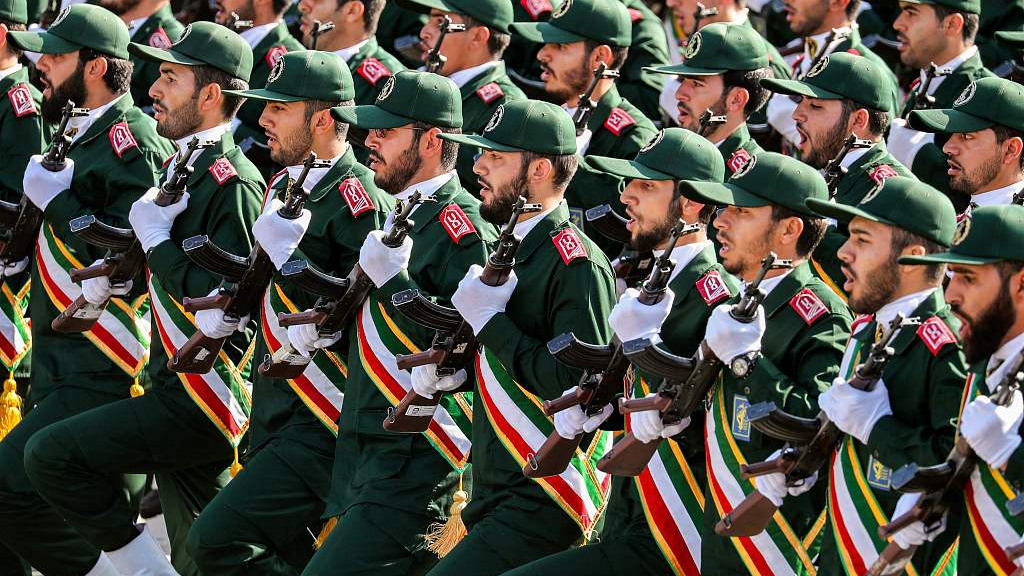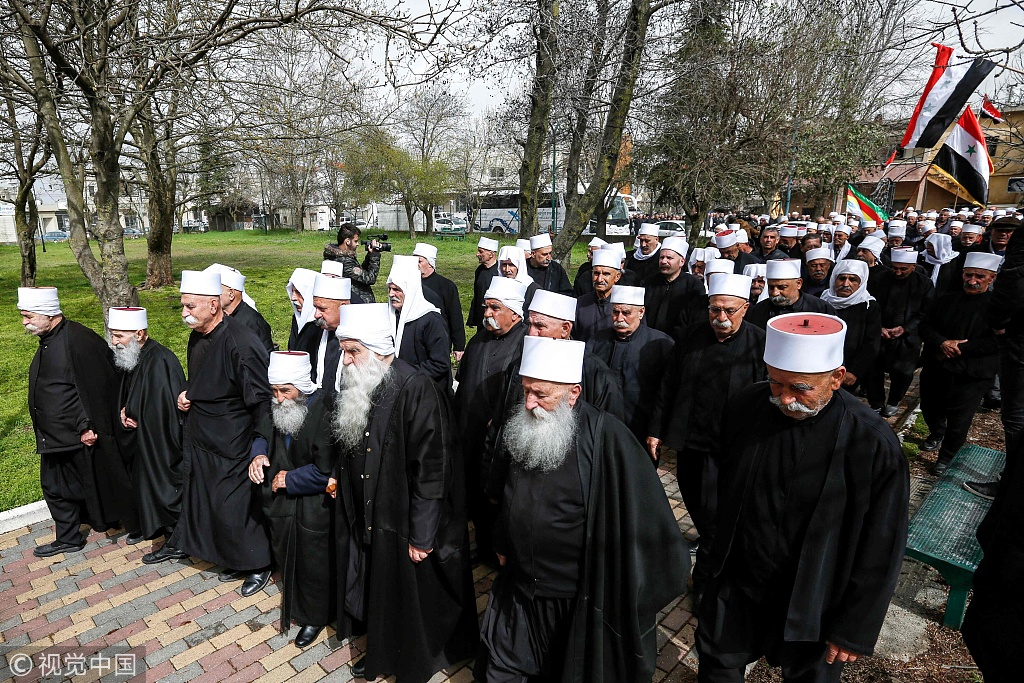
Opinion
20:41, 09-Apr-2019
Trump's politically motivated IRGC designation will backfire
Liu Jianxi

Editor's Note: The article is based on an interview with Professor Li Weijian of the Institute for Foreign Policy Studies at Shanghai Institutes for International Studies. The article reflects the expert's opinion and not necessary views of CGTN.
One year after unilaterally withdrawing from the Iran nuclear deal, U.S. President Donald Trump dropped another bombshell on Tehran. The capricious president confirmed on Monday that the U.S. is designating Iran's Islamic Revolutionary Guard Corps (IRGC) a "terrorist organization," the first time Washington has named another country's military as a "terrorist" threat.
"The IRGC actively participates in, finances, and promotes terrorism as a tool of statecraft," Trump said in a statement, labeling the IRGC as the "Iranian government's primary means of directing and implementing its global terrorist campaign."
"The move is purely symbolic," Professor Li Weijian of the Institute for Foreign Policy Studies at Shanghai Institutes for International Studies told CGTN. Despite Trump's harsh rhetoric, anonymous U.S. officials clarified that Washington will "absolutely not" go to war with Iran or treat the IRGC like Islamic State, Reuters reported.
Apart from clamping down on the Iranian government, the designation, according to Li, is more about targeting countries having contacts with the IRGC. Formed since 1979, the IRGC has a large sway in not only the military but also political and economic systems. A slew of companies, including those within the European Union, have maintained close business ties with the IRGC and its affiliates.

Iranian MPs wearing the outfit of the Islamic Revolutionary Guards Corps (IRGC) during a parliamentary session at the Islamic Consultative Assembly in Tehran in protest against Trump's Monday statement, April 9, 2019. /VCG Photo
Iranian MPs wearing the outfit of the Islamic Revolutionary Guards Corps (IRGC) during a parliamentary session at the Islamic Consultative Assembly in Tehran in protest against Trump's Monday statement, April 9, 2019. /VCG Photo
Labeling the IRGC as a "terror" group will make it easier for Washington to prosecute IRGC contacts, especially those in Europe. In this way, Washington will have more bargaining chips in future interactions with the EU, Li said.
It is worth noting that since Washington's capricious decision to quit the Iran nuclear deal, none of America's allies have followed suit. To get out of the awkward situation, Trump announced the designation, pushing European countries to draw a line with the "terrorist regime." The Trump administration has been adept at playing such tricks for private gain, and this time is mainly to secure European support for its Iran policy.
Moreover, by demonizing Iran, Trump is trying to lure other Middle East countries into its chariot, Li said. The United States, especially during Trump's term in office, has been straining every nerve to drive a dredge between Tehran and Gulf States, including Saudi Arabia, in an effort to draw the latter over to its side.
Although Trump has already withdrawn his country from the region, the president is still happy to woo more regional players to contain Iran, and labeling the IRGC as a "terrorist organization" is one of the most convenient ways to meet this end.
In addition, the designation was announced during the Israeli election campaign. This tells a lot. Trump has been talking about brokering a "deal of the century" between Palestine and Israel for some time. Although no details have been released so far, one thing is for sure – Israeli Prime Minister Benjamin Netanyahu's victory in the election is a prerequisite for the deal.

People protest against U.S. President Donald Trump's recognition of Israel's sovereignty over the Golan Heights in the Druze village, Golan Heights, March 30, 2019. /VCG Photo
People protest against U.S. President Donald Trump's recognition of Israel's sovereignty over the Golan Heights in the Druze village, Golan Heights, March 30, 2019. /VCG Photo
However, Netanyahu has been put under pressure by a slew of scandals, making the election results even more unpredictable. To support Netanyahu, Trump has been taking a wide array of measures from moving the U.S. embassy to Jerusalem to recognizing Israel's sovereignty over the Golan Heights.
Trump's Monday decision on the IRGC is another endeavor to boost Netanyahu's chances of being reelected. After all, Israel has regarded Iran as a severe threat for a long time and the IRGC designation will help win Netanyahu more votes. Trump's announcement was immediately welcomed by the Israeli side. "Thank you, my dear friend, U.S. President Donald Trump… for meeting another of my important requests," Netanyahu reportedly said.
In short, Washington is offering Israel diplomatic resources in exchange for Netanyahu's future term in office, a precondition for the "deal of the century."
Trump is calculating on the IRGC for the maximum of interests, but his decision may backfire. As a response to the designation, Iran's Supreme National Security Council declared the U.S. a "state sponsor of terrorism."
Worse still, if Trump insists on the designation and uses it as the leverage in interactions with the EU, it, as Li believes, will inevitably expand the rifts in EU-U.S. relations. The United States will eventually be distanced by its friends in the end.
(Cover photo: Members of Iran's Revolutionary Guards Corps march during the annual military parade in Tehran marking the anniversary of the 1980-1988 war with Iraq, September 22, 2018. /VCG Photo)
(If you want to contribute and have specific expertise, please contact us at opinions@cgtn.com)

SITEMAP
Copyright © 2018 CGTN. Beijing ICP prepared NO.16065310-3
Copyright © 2018 CGTN. Beijing ICP prepared NO.16065310-3